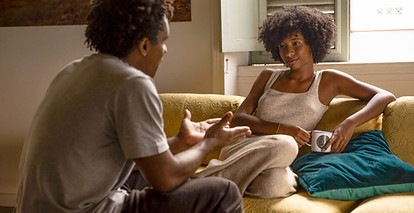Couples Counseling + Marriage Counseling
Resolve Problems + Deepen Connection
Are you looking for couples therapy that goes beyond the words? A couples therapy that considers your nervous system and bodily responses to connection?
Are you struggling to connect because there is a breakdown in communication? Do you find intimacy challenging and it is harming your relationship? Do you, or your partner/s, focus more on work, alcohol, or other people than on the relationship? Or are you fighting about the same things over and over and struggling to find a solution?
Are you foreseeing a break-up, and wondering if there is anything you can try first? Is the passion gone, and you find yourself wanting more sex than you’re having? Are you surviving infidelity? Or are you about to get married and considering premarital counseling?
PRACTITIONERS
Why Couples Counseling?
Relationships can be extremely challenging. After some time together, many of us begin to feel disconnected, questioning whether or not we should break up or get a divorce. Or maybe we check out, become emotionally unavailable, and feel less and less for each other. We can feel lonely in our relationship, and it hurts.
Sometimes we may aim that hurt at our partner/s or vice versa. We find ourselves annoyed by many things they do. Or we cannot seem to have a serious conversation without fighting.
Some of us may be surviving infidelity, and are wondering if we can ever trust again. Or perhaps there was an emotional affair and our feelings are deeply hurt. The list goes on and on.
It is natural for relationships to have problems.
It sucks, but it is natural and to be expected.
When we enter into intimate relationships, we share our thoughts, emotions, and dreams. Our partner’s problems become our problems, and we give them our bodies in sex. This is vulnerability. We open internal doors that we open for few others. For most of us, the last time we were this open and vulnerable was in past relationships, or as a child in our parents’ care. Because of this, intimate relationships bring out parts of ourselves that have often not been touched since we were young and still learning how to connect.
The way we learned to be in relationship as infants greatly influences the way we show up in relationships as adults. Our style of relating—known as our attachment style—is programmed early, but, thankfully, can be reprogrammed at any time.
We now know that when we are triggered in a relationship, the part of our brain that registers threat is highly activated. We also know that this sense of threat is often related to past wounding that occurred in a relationship. Fortunately, this wound heals wonderfully in intimate relationships when the proper conditions are in place.

How Can Couples Counseling Help?
In this type of therapy, you will:
-
Learn to listen to your own and your partner’s bodily signals
-
Locate your own and each other’s triggers
-
Learn ways to soothe yourself and your partner/s
-
Get to the root of disconnection
-
Deepen your ability to take in love and affection
What to Expect . . .
We start by investigating the issues arising in the relationship. We address these through the triggers that happen in real-time during our discussion. What is often found after applying mindful awareness to these issues: early attachment problems affecting our current relationship. We then learn how to tend to those in ourselves and in each other.
Finally, we will teach you time-tested methods of working with destructive cycles that often come about because of these younger issues. This work can contribute not only to the repair of the relationship but to the healing of each of us as individuals.
It is challenging and extremely rewarding work. With attention, intimate relationships can be our greatest source of inspiration and repair.

Couples Counseling FAQ
Is couples therapy actually effective? Even doing online sessions?
This form of couples counseling is reliably effective, online or in person. Many couples begin to see results (meaning relating to each other with more ease, care, understanding, and support) in the first couple of sessions. If sessions are done online, we will advise you to use a certain camera/room setup to make this work just as effective as if we were in our office.
It seems expensive . . . are we going to need to do couples therapy for a long time?
Truth be told, this type of couples therapy does work to get at the root of the problems, but it also teaches you how to take care of the problems as a team. And because of this, most couples eventually run out of a need for the therapist. This work often improves a relationship in a much shorter time than you might expect.
I really want to do couples therapy, but my partner is resistant. What do I do?
When all parties want more connection and security, it is possible to achieve it. But if it is only you, we recommend you try individual somatic therapy with us and work on your side of the relationship issues as much as possible. Such effort can spread in the relationship and inspire your partner to do their part as well.
We are ready . . . what is the next step?
Simply click the Get in Touch button below and fill out our online contact form. We will take it from there.











